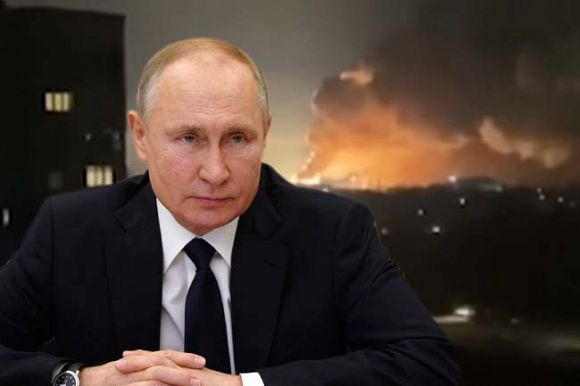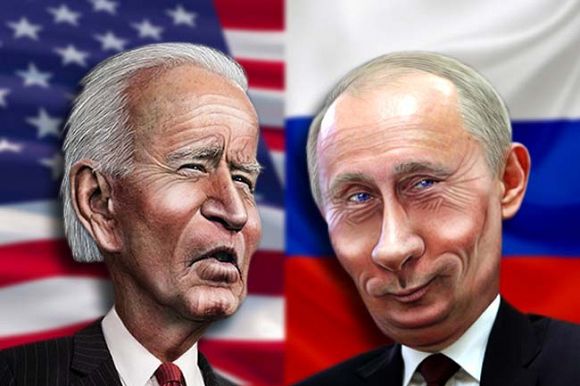The war in Ukraine has historical precedents, writes Frances Letters.
50 YEARS AGO, as February 1972 was ending, a sorry prediction surfaced at the five-day National Anti-war Conference being held in Sydney. It is troubling to see how close to the bone that prophecy is now proving to be.
It stated:
"Without true moral change there will be more and bloodier Vietnams."
I've just stumbled on the paper I delivered at that conference titled Laos and Cambodia: The new escalation. Only two weeks before, the U.S. – fighting in Vietnam since 1964 – had ordered the invasion of then-peaceful Laos. They'd invaded Cambodia the previous year. The "Vietnam War" had become the "Indo-China War".
That 50-year-old speech rings a disturbing bell today.
Ukraine. Russia. The U.S. and NATO. AUKUS. China. Taiwan. The suspicions and fears grip us all; the cravings for security and power reign.
In 1970, like most of Ukraine recently, Cambodia and the greater part of Laos had contrived to remain at peace, despite U.S.-controlled armies massed on their frontiers. Although their borders had harboured neutralists, communists and anti-communists of all kinds, there had been little actual conflict there.
In 1967 I'd hitch-hiked up and down through both countries. Day and night I had quaked at the ominous thunder of U.S. bombing rumbling from across the Vietnamese frontier and northern Laos. Yet the villages were at peace. For years they'd been untouched by the bombing and shooting and burning next door.
Clearly, their tranquillity was precarious: deft, canny diplomacy meant they were surviving.
Norodom Sihanouk in Cambodia was a remarkable tightrope-walker and juggler. Pressured on all sides by the Soviet Union, the U.S. and China, and fearful of his traditional enemies Saigon and Bangkok, he shrewdly and fiercely played off one against the other.
Cambodia, he said, should be like an ant watching from a distance while elephants battled and stormed and gouged one another to death. His constant fear, however, was that the ant would be trampled under those mighty feet.
In March 1970, an American-backed coup felled Sihanouk. The day U.S. and South Vietnamese armies roared over the Cambodian frontier, paradoxically it was a huge American finger – not the predicted Communist one – that flicked the last domino aside. The quiet towns and villages were at war. The ant was stamped into oblivion.
In Laos, the situation was more complicated, but still, the status quo held its precarious balance. The country was divided relatively neatly into Communist and Government-controlled areas. The Geneva Conventions were being tacitly broken on all sides, since everyone – Americans, North Vietnamese Communists, Thais, even the old Kuomintang – had forces there.
But it was all unofficial. The illusion of neutrality still held: a hypocritical pretence, no doubt, but one that worked. Despite years of constant American bombing in Communist-held territories, most Laotians lived in peace.
The invasion ended that and created a free-fire zone. China could not but feel its borders threatened.
The ant analogy rings just as true today. Russia's pounding feet have finally crushed Ukraine's careful peace. China's boots are polished and ready, so Taiwan's future is uncertain.
As Russia's adventure in Ukraine clearly shows, invasions are far easier and less dangerous for the invaders when technology rules. Automation shows a way to have your cake and eat it. A uniformed foot-soldier with a gun and a snarl is an attack: most unpleasant and dangerous for everyone. Bombing is quite different. Bombing is pushing buttons.
Your chances of dying are greatly minimised when from afar you can program your missiles and rockets to explode when and where you choose. Casualty lists shorten dramatically; frowns and protests at home are soothed into smiles.
And as for the future and 21st-Century drones? Who knows where their increasingly clever, sly prowess will lead us?
The speech winds down with a 50-year-old sigh:
"It seems that anything is permissable while it is to our advantage. War is only bad when it hurts us."
But it ends with a spurt of hope:
"Morality is sometimes referred to – even dismissed – as a liberal concept. In fact it is the most radical stance of all. Pragmatism changes nothing but a few surface details: moral reappraisal can revolutionise from the roots up. So we human beings really can change, if we want to enough."
Frances Letters is a writer, journalist, meditation teacher and activist.
Related Articles
- Ukraine: Three decades after the Cold War, back to open conflict
- USA and Europe react to Russian moves against Ukraine
- MH17: Re-evaluating the tragedy after the ceasefire
- What is the truth about Ukraine and MH17?
- Ukraine presidential elections and activism through art
 This work is licensed under a Creative Commons Attribution-NonCommercial-NoDerivs 3.0 Australia License
This work is licensed under a Creative Commons Attribution-NonCommercial-NoDerivs 3.0 Australia License
Support independent journalism Subscribe to IA.















